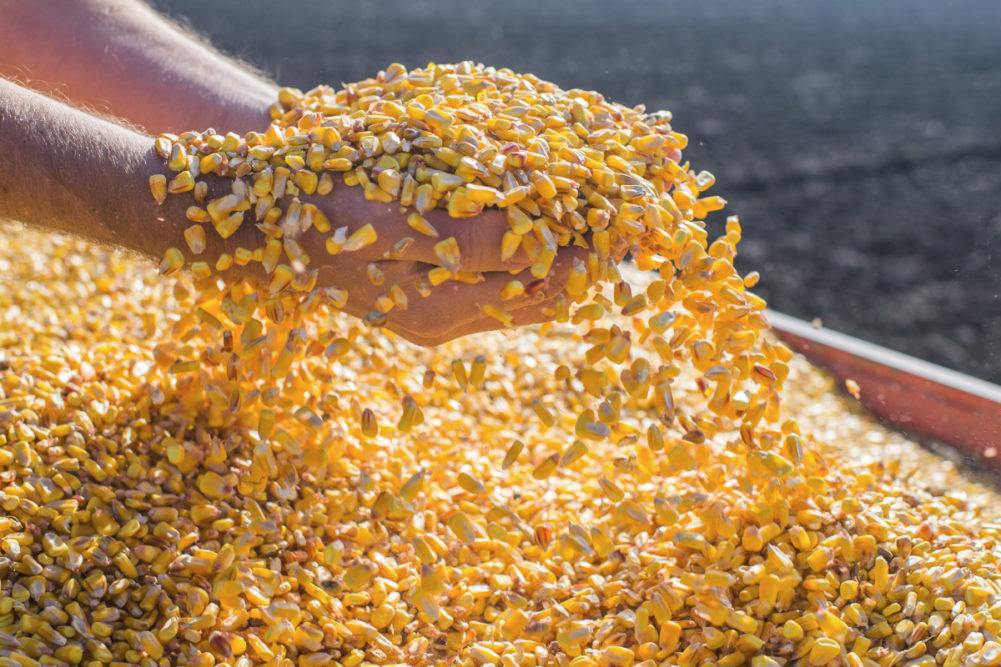WASHINGTON, DC, US — US corn for export cargo for the 2020-21 marketing year received an overall good rating for quality, according to the US Grains Council’s (USGC) 2020-2021 Corn Export Cargo Quality Report.
More specifically, it found that nearly all, 96.6%, of the corn samples were rated at or below the limit for US No. 2 grade, with higher test weight and lower total damage and broken corn and foreign material (BCFM) than 2019-20 export samples.
The report in general provides information about the quality of US yellow commodity corn assembled for export early in the marketing year and giving stakeholders an opportunity to evaluate the year-to-year changes in the US corn crop.
“To help fulfill our mission of connecting US farmers to global markets, the Council is pleased to offer this report as a service to our international customers,” said Jim Raben, chairman for USGC. “We hope it continues to provide valuable information about the quality of the US corn crop to our trading partners.”
Raben noted that a good growing season may have led to a higher quality of corn for US exports.
“Favorable growing season conditions experienced by the 2020 US crop likely benefited the quality of the corn assembled for export early in the 2020-21 marketing year,” Raben said. “The quality information provided in the report is important to foreign buyers and other industry stakeholders as they make decisions about grain origination and grade while finalizing their purchase contracts and processing needs for corn for feed, food or industrial use.”
Some snapshots of the quality attributes of the 2020-21 export samples included:
- Higher average test weight (57.9 pounds per bushel (lb/bu) or 74.5 kilograms per hectoliter (kg/hl)) than 2019-20 and the five-year average, indicating overall good quality.
- Most of or 92.7% of the samples were rated at or above the limit for US No. 1 grade compared to 73.1% of the samples in 2019-20.
- Lower average BCFM, 2.8%, than 2019-20, the five-year average and the maximum limit for US No. 2 grade. BCFM increased from 0.8% to 2.8%, as the crop moved from harvest through the marketing channel to export.
- Lower average total damage at export, 2.3%, than 2019-20 but similar to the five-year average.
- Average heat damage of 0.0%, the same as 2019-20 and the five-year average, indicating good management of drying and storage of corn throughout the marketing channel.
- Average 100-kernel weight, 37.01 grams, higher than 2019-20 and the five-year average, indicating heavier kernels in 2020-21 than last year and the five-year average.
- All but one of the samples tested below the US Food and Drug Administration (FDA) action level for aflatoxin of 20.0 parts per billion (ppb). A total of 98.3% of export samples had levels of aflatoxin below the Federal Grain Inspection Service (FGIS) “Lower Conformance Limit” of 5.0 ppb in 2020-21, a slightly higher proportion than in 2019-20, 96.3%.
- All the samples below the 5.0 parts per million (ppm) FDA advisory level for DON, the same as 2019-20. Of the 180 samples tested for DON in 2020-21, 95.6% showed levels of DON below 1.5 ppm, a lower proportion than in 2019-20, 98.3%.
- Of the 180 samples tested for fumonisin, 179 or 99.4% tested below the FDA’s strictest guidance level for fumonisin of 5.0 ppm.
The export quality report is based on 440 samples taken at the point of loading for international shipment early in the 2020-21 marketing year.
“The Council is dedicated to the furtherance of global food security and mutual economic benefit and offers this report to promote continuous trade expansion,” Raben said. “By providing this reliable and timely report on the quality of US corn destined for export, buyers can make well-informed decisions and have confidence in the capacity and reliability of the US corn market.”






